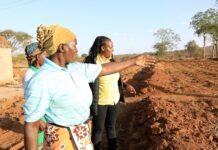Linking climate change resilience to economic and social development has the most potential for generational change, particularly in low-income countries. Deriving concrete benefits from increased resilience can make it real and part of daily life.
One effective way to do this is through school environmental clubs.
For example, clubs in Kenya learn about what drives climate change, including actions taken by members of their own communities. In many rural areas, the main action is harvesting wood for fuel from established forests. The result is deforestation that reduces CO2 absorption capacity and, as important, protection from wind damage. Unimpeded wind can cause serious damage to homes, livestock enclosures, schools and other structures. The costs of rebuilding keep many families in poverty.
To counter this, school environments clubs plant hundreds of tree seedlings near their schools. These are especially bred fast-growing trees. When fully grown, they will provide shade to help keep schools cooler and provide protection from wind.
Their branches are harvested and sold as fuel in local markets. Students generate income for their clubs and learn entrepreneurial skills. Crucially, this source of fuel reduces pressure on families to harvest wood from established forests.
These are concrete financial and other improvements that make climate resilience real—and beneficial-for students and their families.
A similar program is underway in Tanzania. The eight school environmental clubs there are linked to the Rorya District Department of the Environment. This will help ensure their continued activities once World Neighbors, the NGO that helped set them up, ends its involvement.









